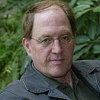Ukraine war: people are fighting and dying for Vladimir Putin’s flawed version of history
Vladimir Putin invoked history to justify his country’s invasion of Ukraine. To cement that message at home, his regime is feeding domestic audiences propaganda insisting that the Russian army fights “against Nazism” across the globe.
In a bid to ensure this message takes root among the country’s youth, Russia’s Ministry of Education recently announced its intent to create a unified single history course to “correct the presentation of history in universities”. The course, which will be compulsory for all students, aims to “instil in a young person pride in our history, involvement in more than a thousand-year-old culture, awareness of the inheritance of the deeds and accomplishments of their ancestors”.
But the Russian president’s tendentious use of history relies on a highly selective reading. In speeches delivered before the invasion, Putin claimed that Ukraine is “an inalienable part of our own history, culture, and spiritual space”. This theme, developed politically in Russia over the past two decades, emphasises the common heritage of the so-called “Russian world”. This imagined cultural-historical space is centred on the holy trinity of Belarus, Ukraine and Russia, all of which trace their roots back to the ancient principality of Kyivan Rus’.
Putin also contends that Lenin and the Bolsheviks promised Ukrainians their own state simply to consolidate power. Indeed, he criticises Soviet policies towards Ukraine and the USSR’s other titular republics by asking why it was necessary “to make such generous gifts, the kind that even the most zealous nationalists never dreamed of before”. Such allegations, however, ignore the reality that the development of a Ukrainian national identity and political consciousness significantly predates the formation of the Soviet Union.
To bolster Russia’s claims as champions of the fight against fascism, Putin has likewise emphasised the “sacred” sacrifices made by Soviet people to vanquish Nazism and the need for similar sacrifices today: “Your fathers, grandfathers and great-grandfathers did not fight the Nazi occupiers and did not defend our common motherland so that today’s neo-Nazis could seize power in Ukraine.”
By invading Ukraine, he is also rejecting the legacy of the 1991 Belovezha Accords between Russia, Belarus and Ukraine, which brought about the demise of the Soviet Union and demarcated the borders of the post-Soviet states. This is something Putin has referred to as the “the greatest geopolitical catastrophe” of the last century. The aim of Putin’s historical revisionism is to challenge the “humiliating” loss of great power status that resulted from the Soviet Union’s dissolution.
Finally, Putin insists that after acquiring independence Ukrainian authorities took advantage of Russia economically while “building their statehood by negating everything that unites us, by trying to destroy the mentality and historical memory of millions of people, of entire generations living in Ukraine”. Anyone familiar with the fractious politics of post-Soviet Ukraine, where power has routinely shifted between regionally based interests both more and less amenable to rapport with Moscow, will understand the perfidy of the latter claim.
Putin’s use of history
Putin’s historical distortions are chaotic and jumbled. The crisis in Ukraine is concurrently presented as “the fault” of the west – or Lenin, or Ukrainian nationalists. But never Russia. If anything, these claims underline just how deep Putin’s ambition is to restore Russia to its “rightful” place in the pantheon of nations. Nonetheless, the Russian president appears ready to use any historical reference necessary to justify his cynical policies.
Now Putin wants these messages embedded in Russia’s educational curriculum. But, as our research has shown, the extent to which such narratives actually take hold in society remains uncertain. Our survey from 2021 revealed that a diversity of historical viewpoints continue to persist in Russia.
But questioning the official historical narrative in Russia today may lead to severe consequences. Already in 2014, a law made it illegal to criticise the Red Army’s actions in the second world war. Echoing this injunction, a law passed in early March 2022 threatens to punish criticism of the Russian military’s actions in Ukraine with up to 15 years of imprisonment.
History wars
The obsession of Russian elites with history is part of the war in Ukraine. Over the course of the past few weeks it has become clear just how diametrically opposed the two countries’ prevailing historical narratives are and how much they are being manipulated. Indeed, Russia’s defence minister, Sergei Shoigu, recently announced an “international antifascist conference” would be held in Russia this August to “unite the efforts of the international community in the fight against Nazi ideology and neo-Nazism in all its manifestations in the modern world”.
Dialogue over how to interpret the legacies of the Soviet era was still possible before the invasion of Ukraine. But Kremlin war rhetoric, which pushes the line about “genocide” being enacted against Russian speakers in the east of Ukraine and the need for “denazification” of Ukrainian politics has severely damaged the prospects of historical reconciliation between the two societies.
Referencing past legacies as a justification for present-day political decisions is often effective – such appeals trigger emotional reflexes and contribute to thinking about politics in terms of rivalry and defence. The irony within the tragedy of the current situation is that Putin will assuredly go down in history as the figure that did more to unite the Ukrainian people (albeit against Russia) than any other in recent memory.
Félix Krawatzek, Senior Researcher at the Centre for East European and International Studies and Associate Member of Nuffield College, University of Oxford and George Soroka, Lecturer on Government and Assistant Director of Undergraduate Studies, Harvard University
This article is republished from The Conversation under a Creative Commons license. Read the original article.



















